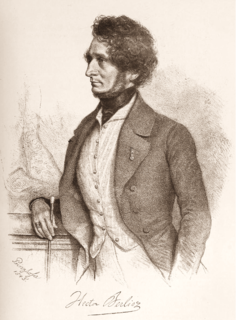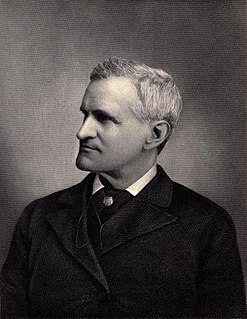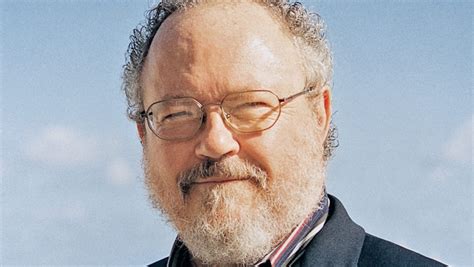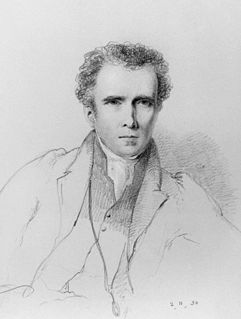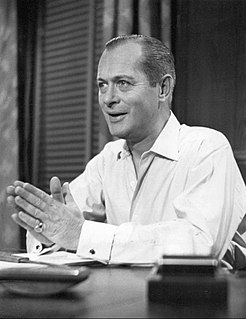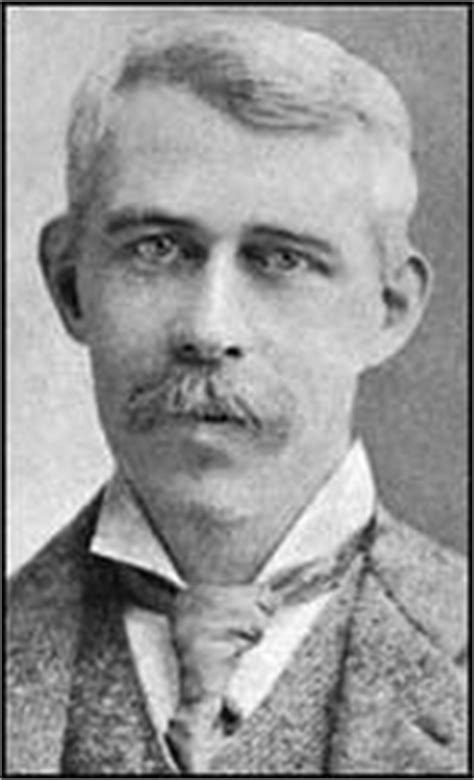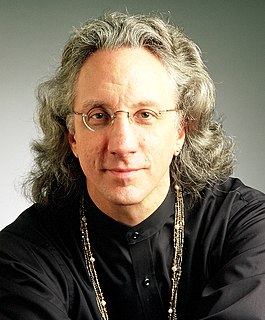Top 424 Doom Quotes & Sayings - Page 7
Explore popular Doom quotes.
Last updated on December 22, 2024.
However baby man may brag of his science and skill, and however much, in a flattering future, that science and skill may augment; yet for ever and for ever, to the crack of doom, the sea will insult and murder him, and pulverize the stateliest, stiffest frigate he can make; nevertheless, by the continual repetition of these very impressions, man has lost that sense of the full awfulness of the sea which aboriginally belongs to it.
When I worked at Microsoft, I got to go and visit a bunch of different companies. Probably a hundred different companies a year. You'd see all the different ways they'd work. The guys who did Ventura Publisher one day, and then United Airlines the next. You'd see the 12 guys in Texas doing Doom, and then you'd go see Aetna life insurance.
Capitalism in the 19th century did not doom the worker to a life of perpetual poverty. Instead, they kept creating new and better-paying employments as the decades went by. They produced the wealth and rising income that resulted in the emergence of a phenomenon completely new to human history: a self-supporting and educated middle class that grew more and more as they lower classes bettered their economic well-being.
I shared a vagrant optimism that some of us were making real progress, that we had taken an honest road, and that the best of us would inevitably make it over the top. At the same time, I felt that the life we were leading was a lost cause, that we were all actor, kidding ourselves on a senseless odyssey. It was the tension between those two poles - a restless idealism on one hand and a sense of impending doom on the other - that kept me going.
Claudia Rankine's Citizen comes at you like doom. It's the best note in the wrong song that is America. Its various realities-'mistaken' identity, social racism, the whole fabric of urban and suburban life-are almost too much to bear, but you bear them, because it's the truth. Citizen is Rankine's Spoon River Anthology, an epic as large and frightening and beautiful as the country and various emotional states that produced it.
I was talking to Cecil [Castellucci], who writes Shade, and I was saying to her, and she was saying the same thing, that I'm not even the same person who wrote the first issue of Doom Patrol, and that was six months ago. I'm a totally different person now, already. It's weird to look back at stuff, but it's an honor that there's a legacy of people who still keep it in their heads. It's really cool!
When men evaluate each other as men, they still look for the same virtues that they'd need to keep the perimeter. Men respond to and admire the qualities that would make men useful and dependable in an emergency. Men have always had a role apart, and they still judge one another according to the demands of that role as a guardian in a gang struggling for survival against encroaching doom. Everything that is specifically about being a man-not merely a person-has to do with that role.
Since the State thrives on what it expropriates, the general decline in production that it induces by its avarice foretells its own doom. Its source of income dries up. Thus, in pulling Society down it pulls itself down. Its ultimate collapse is usually occasioned by a disastrous war, but preceding that event is a history of increasing and discouraging levies on the marketplace, causing a decline in the aspirations, hopes, and self-esteem of its victims.
Early on a difficult climb, especially a solo climb, you’re hyper-aware of the abyss pulling at your back, constantly feeling its call, its immense hunger. To resist takes tremendous conscious effort, you don’t dare let your guard down for an instant. The void puts you on edge, makes your movements tentative and clumsy. But as the climb continues, you grow accustomed to the exposure, you get used to rubbing shoulders with doom, you come to believe in the reliability of your hands and feet and head. You learn to trust your self-control.
In Technologized Desire, the cultural pathologies that mark the panic ecstasy and terminal doom of the posthuman condition are powerfully rehearsed in the language of science fiction. Here, images of prosthetic subjects, zombies, cut-ups and armies of the medieval dead actually slip off the pages of literature to become the terminal hauntology of these technologized times. Technologized Desire is nothing less than a brilliant data screen of future memories. Read it well: it's a survival guide for bodies flatlined by the speed of accelerating technology.
His whole being radiates a pure, wild sweetness, flitting through night woods with little melodious cries, on some cryptic errand. There is also an aura of doom and sadness about this trusting little creature. He has been abandoned many times over the centuries, left to die in cold city alleys, in hot noon vacant lots, pottery shards, nettles, crumbled mud walls. Many times he has cried for help in vain.
A wrong attitude towards nature implies, somewhere, a wrong attitude towards God, and that the consequence is an inevitable doom. For a long enough time we have believed in nothing but the values arising in a mechanized, commercialized, urbanized way of life: it would be as well for us to face the permanent conditions upon which God allows us to live upon this planet.
In my opinion, the trombone is the true head of the family of wind instruments, which I have named the 'epic' one. It possesses nobility and grandeur to the highest degree; it has all the serious and powerful tones of sublime musical poetry, from religious, calm and imposing accents to savage, orgiastic outburst. Directed by the will of the master, the trombones can chant like a choir of priests, threaten, utter gloomy sighs, a mournful lament, or a bright hymn of glory; they can break forth into awe-inspiring cries and awaken the dead or doom the living with their fearful voices.
Some artists, such as Jack Kirby, need no plot at all. I mean I'll just say to Jack, "Let's let the next villain be Dr. Doom" ... or I may not even say that. He may tell me. And then he goes home and does it. He's so good at plots, I'm sure he's a thousand times better than I. He just makes up the plots for these stories. All I do is a little editing ... I may tell him that he's gone too far in one direction or another. Of course, occasionally I'll give him a plot, but we're practically both the writers on the things.
The monk, the inquisitor, and the Jesuit were lords of Spain,- sovereigns of her sovereign, for they had formed the dark and narrow mind of that tyrannical recluse. They had formed the minds of her people, quenched in blood every spark of rising heresy, and given over a noble nation to a bigotry blind and inexorable as the doom of fate. Linked with pride, ambition, avarice, every passion of a rich, strong nature, potent for good and ill, it made the Spaniard of that day a scourge as dire as ever fell on man.
Only a catastrophe gets our attention. We want them, we depend on them. As long as they happen somewhere else. This is where California comes in. Mud slides, brush fires, coastal erosion, mass killings, et cetera. We can relax and enjoy these disasters because in our hearts we feel that California deserves whatever it gets. Californians invented the concept of life-style. This alone warrants their doom.
Those that think that wealth is the proper thing for them cannot give up their revenues; those that seek distinction cannot give up the thought of fame; those that cleave to power cannot give the handle of it to others. While they hold their grasp of those things, they are afraid of losing them. When they let them go, they are grieved and they will not look at a single example, from which they might perceive the folly of their restless pursuits - such men are under the doom of heaven.
Perhaps that is our doom, our human curse, to never really know one another. We erect edifices in our minds about the flimsy framework of word and deed, mere totems of the true person, who, like the gods to whom the temples were built, remains hidden. We understand our own construct; we know our own theory; we love our own fabrication. Still . . . does the artifice of our affection make our love any less real?
I feel that we have, as Mexicans, two things: one, a natural distrust of institutions. I hate organised religion, I hate organised politics, I hate the idea of the military and the police. Because we grew up distrusting all these sacred institutions, the only thing you have left is a vague, national sense of impending doom. Why do we drink and how are we so merry? Because we know that pretty soon, our time's up. There is a sense of fatality that makes us pretty chirpy people. You try to live. The only reason that dying is important is that it gives life sense.
Mene mene tekel upsharin,' Jace said with a faint smile. 'You don't recognize it? It's from the Bible, vampire. The old one. That's your book, isn't it?' Just because I'm Jewish doesn't mean I've memorized the Old Testament.' It's the Writing on the Wall. "God hath numbered thy kingdom, and brought it to an end; thou art weighed in the balance and found wanting." It's a portent of doom--it means the end of an empire.
So the Dark did a simple thing. They showed the maker of the sword his own uncertainty and fear. Fear of having done the wrong thing--fear that having done this one great thing, he would never again be able to accomplish anything of great worth--fear of age, of insufficiency, of unmet promise. All such great fears, that are the doom of people given the gift of making, and lie always somewhere in their minds.
The prophet who fails to present a bearable alternative and yet preaches doom is part of the trap that he postulates. Not only does he picture us caught in a tremendous man-made or God-made trap from which there is no escape, but we must also listen to him day in, day out, describe how the trap is inexorably closing. To such prophecies the human race, as presently bred and educated and situated, is incapable of listening. So some dance and some immolate themselves as human torches; some take drugs and some artists spill their creativity in sets of randomly placed dots on a white ground.
People like Nick Cave - that ridiculous, over-the-top doom, taking it to extremes - I find it uplifting because it's like someone else is feeling what you're feeling and putting it into their music. Someone expressing extreme joy is just as valuable; it's just the fact that they're expressing their soul through music.
It was an evil doom that set her in his path. For she is a fair maiden, fairest lady of a house of queens. And yet I know not how I should speak of her. When I first looked on her and perceived her unhappiness, it seemed to me that I saw a white flower standing straight and proud, shapely as a lily and yet knew that it was hard, as if wrought by elf-wrights out of steel.
I certainly never believed, more or less, in the "essential doctrines" of Christianity, which represent God as the predestinator of men to sin and perdition, and Christ as their rescuer from that doom. I never was more or less behuiled by the trickery of language by which the perdition of man is made out to be justice, and his redemption to be mercy.
A great dread fell on him, as if he was awaiting the pronouncement of some doom that he had long foreseen and vainly hoped might after all never be spoken. An overwhelming longing to rest and remain at peace by Bilbo's side in Rivendell filled all his heart. At last with an effort he spoke, and wondered to hear his own words, as if some other will was using his small voice. "I will take the Ring," he said, "though I do not know the way.
This hour in history needs a dedicated circle of transformed nonconformists. Our planet teeters on the brink of annihilation; dangerous passions of pride, hatred, and selfishness are enthroned in our lives; and men do reverence before false gods of nationalism and materialism. The saving of our world from pending doom will come, not through the complacent adjustment of the conforming majority, but through the creative maladjustment of a nonconforming minority.
Despite all the doom and gloom that constantly assaults our senses, there is a way for us to ransom our lives and reclaim our futures: it consists in turning away from the world to recognize what in life makes us truly happy. For each of us, what that is will be different. But once we obtain this inner knowledge, we will possess the ability to transform our outer world. "You can live a lifetime and, at the end of it, know more about other people than you know about yourself," the pilot and writer Beryl Markham reminds us. We cannot let this continue to occur.
We rarely get to prepare ourselves in meadows or on graveled walks; we do it on short notice in places without windows, hospital corridors, rooms like this lounge with its cracked plastic sofa and Cinzano ashtrays, where the cafe curtains cover blank concrete. In rooms like this, with so little time, we prepare our gestures, get them by heart so we can do them when we're frightened in the face of Doom.
We really have no choice but to pray and encourage a return to an America steeped in Judeo-Christian values. It is either that or taking our chances in a society with no values at all. For all Americans the former carries certain risks, but the latter spells certain doom. For now, we should not be deflected by theological debate from the life-saving tasks awaiting us. There is work to be done. We must ensure that America will continue to be part of God's plan for the world.
Not understanding the process of a spontaneously-ordered economy goes hand-in-hand with not understanding the creation of resources and wealth. And when a person does not understand the creation of resources and wealth, the only intellectual alternative is to believe that increasing wealth must be at the cost of someone else. This belief that our good fortune must be an exploitation of others may be the taproot of false prophecy about doom that our evil ways must bring upon us.
An infant prodigy of nine is shoved upon the stage in white. She starts off in a dismal whine about a dark and stormy night, a burglar, whose heart is true, despite his wicked-looking face, who puts the little child in doom, to save her mamma's jewel case. This may bring tears to every eye; it does not set my heart on fire. I'd like to stand serenely by and watch that horrid child expire.
Let us contemplate our forefathers, and posterity, and resolve to maintain the rights bequeathed to us from the former, for the sake of the latter. The necessity of the times, more than ever, calls for our utmost circumspection, deliberation, fortitude and perseverance. Let us remember that "if we suffer tamely a lawless attack upon our liberty, we encourage it, and involve others in our doom," it is a very serious consideration that millions yet unborn may be the miserable sharers of the event.
I thought the earth remembered me, she took me back so tenderly, arranging her dark skirts, her pockets full of lichens and seeds. I slept as never before, a stone on the river bed, nothing between me and the white fire of the stars but my thoughts, and they floated light as moths among the branches of the perfect trees. All night I heard the small kingdoms breathing around me, the insects, and the birds who do their work in the darkness. All night I rose and fell, as if in water, grappling with a luminous doom. By morning I had vanished at least a dozen times into something better.
The world worlds, and is more fully in being than the tangible and perceptible realm in which we believe ourselves to be at home...By the opening up of a world, all things gain their lingering and hastening, their remoteness and nearness, their scope and limits. In a world's worlding is gathered that spaciousness out of which the protective grace of the gods is granted and withheld. Even this doom of the god remaining absent is a way in which the world worlds...All coming to presence...keeps itself concealed to the last.
What did Doctor Doom really want? He wanted to rule the world. Now, think about this. You could walk across the street against a traffic light and get a summons for jaywalking, but you could walk up to a police officer and say "I want to rule the world," and there's nothing he can do about it, that is not a crime. Anybody can want to rule the world. So, even though he was the Fantastic Four's greatest menace, in my mind, he was never a criminal!
We say, then, that Scripture clearly proves this much, that God by his eternal and immutable counsel determined once for all those whom it was his pleasure one day to admit to salvation, and those whom, on the other hand, it was his pleasure to doom to destruction. We maintain that this counsel, as regards the elect, is founded on his free mercy, without any respect to human worth, while those whom he dooms to destruction are excluded from access to life by a just and blameless, but at the same time incomprehensible judgment
Yes?’ he asked, looking at me over the sheet. ‘I’m a writer temporarily down on my inspirations.’ ‘Oh, a writer, eh?’ ‘Yes.’ ‘Are you sure?’ ‘No, I’m not.’ ‘What do you write?’ ‘Short stories mostly. And I’m halfway through a novel.’ ‘A novel, eh?’ ‘Yes.’ ‘What’s the name of it?’ ‘”The Leaky Faucet of My Doom.”‘ ‘Oh, I like that. What’s it about?’ ‘Everything.’ ‘Everything? You mean, for instance, it’s about cancer?’ ‘Yes.’ ‘How about my wife?’ ‘She’s in there too.
There is not much talking now. A silence falls upon them all. This is no time to talk of hedges and fields, or the beauties of any country. Sadness and fear and hate, how they well up in the heart and mind, whenever one opens pages of these messengers of doom. Cry for the broken tribe, for the law and the custom that is gone. Aye, and cry aloud for the man who is dead, for the woman and children bereaved. Cry, the beloved country, these things are not yet at an end. The sun pours down on the earth, on the lovely land that man cannot enjoy. He knows only the fear of his heart.
Genius! thou gift of Heav'n! thou Light divine!
Amid what dangers art thou doom'd to shine!
Oft will the body's weakness check thy force,
Oft damp thy Vigour, and impede thy course;
And trembling nerves compel thee to restrain
Thy noble efforts, to contend with pain;
Or Want (sad guest!) will in thy presence come,
And breathe around her melancholy gloom:
To Life's low cares will thy proud thought confine,
And make her sufferings, her impatience, thine.
Yet if you go to the supermarket and look at food that's produced through industrial agriculture, look at what's happened to the prices. Have they been going down? They've been going up and they will continue to go up. So the choice is either, do we hitch onto a system of agriculture that's doomed and will doom the planet with it, and go along the route of industrial agriculture, or do we want to shift to a kind of system that we know is going to be, in the long run, cheaper, because we'll have a planet left at the end of it? We need to factor that cost in.
The more children see of violence, the more numb they are to the deadly consequences of violence. Now, video games like 'Mortal Kombat,' 'Killer Instinct,' and 'Doom,' the very game played obsessively by the two young men who ended so many lives in Littleton, make our children more active participants in simulated violence.
Some dangers are so spectacular and so much beyond normal experience that the mind refuses to accept them as real, and watches the approach of doom without any sense of apprehension. The man who looks at the onrushing tidal wave, the descending avalanche, or the spinning funnel of the tornado, yet makes no attempt to flee, is not necessarily paralyzed with fright or resigned to an unavoidable fate. He may simply be unable to believe that the message of his eyes concerns him personally. It is all happening to somebody else.
After man there would be the mighty beetle civilisation, the bodies of whose members the cream of the Great Race would seize when the monstrous doom overtook the elder world. Later, as the earth's span closed, the transferred minds would again migrate through time and space -- to another stopping place in the bodies of the bulbous vegetable entities of Mercury. But there would be races after them, clinging pathetically to the cold planet and burrowing to its horror-filled core, before the utter end.
As the original 'Mary Poppins' budget of five million dollars continued to grow, I never saw a sad face around the entire Studio. And this made me nervous. I knew the picture would have to gross 10 million dollars for us to break even. But still there was no negative head-shaking. No prophets of doom. Even Roy was happy. He didn't even ask me to show the unfinished picture to a banker. The horrible thought struck me - suppose the staff had finally conceded that I knew what I was doing.
Where beats a heart within a human breast,
There be Thou present, and Thy power adored!
And oh! since all one common race are doom'd
To run, and one eternal goal to reach,
May Thy prime attribute each bosom warm
With tender sympathy and truth; may man
To man be link'd to man in fellowship of soul,
Till one vast chain of Love embrace the world!
When we fully understand the brevity of life, its fleeting joys and unavoidable pains; when we accept the facts that all men and women are approaching an inevitable doom: the consciousness of it should make us more kindly and considerate of each other. This feeling should make men and women use their best efforts to help their fellow travelers on the road, to make the path brighter and easier as we journey on. It should bring a closer kinship, a better understanding, and a deeper sympathy for the wayfarers who must live a common life and die a common death.
In every Christian's Heart, there is a cross and a throne, and the Christian is on the throne till he puts himself on the cross; if he refuses the cross, he remains on the throne. Perhaps this is at the bottom of the backsliding and worldliness among Gospel believers today. We want to be saved, but we insist that Christ do all the dying. No cross for us, no dethronement, no dying. We remain king within the little kingdom of man's soul and wear our tinsel crown with all the pride of a caesar; but we doom ourselves to shadows and weakness and spiritual sterility.
[All the ancient wisdom] tells us that work is necessary to us, as much a part of our condition as mortality; that good work is our salvation and our joy; that shoddy or dishonest or self-serving work is our curse and our doom. We have tried to escape the sweat and sorrow promised in Genesis - only to find that, in order to do so, we must forswear love and excellence, health and joy. (pg. 44, "The Unsettling of America")
She wanted an Angel of Music . . . an angel who would make her believe in herself at last. I'd been the Angel of Doom for the khanum. There was no reason in the world why I could not be the Angel of Music for Christine. I couldn't hope to be a man to her, I couldn't ever be a real, breathing, living man waking at her side and reaching out for her . . . But I could be her angel' -Erik
A lot of our fellow liberals ... seem to me rather to doom themselves to futility in public affairs because the won't recognize that there's a zone of natural affection midway between the inner, or family one, and the outer, or all-humanity one. I suppose they are somehow short of a zone themselves and they seem to get vexed... The common man knows better, just as he'd know better if some philosopher told him he ought not to make invidious distinctions by feeding his own children in preference to others. But of course he can't explain; he just ... goes on feeding the kids.
All of Western tradition, from the late bloom of the British Empire right through the early doom of Vietnam, dictates that you do something spectacular and irreversible whenever you find yourself in or whenever you impose yourself upon a wholly unfamiliar situation belonging to somebody else. Frequently it's your soul or your honor or your manhood, or democracy itself, at stake.
Here's what I say: We will ignore the cult of doom and gloom and embrace the cause of zoom and boom. We will laugh at the stupidity of evil and hate, and summon the brilliance of praise and create. . . Life is crazily in love with us-wildly and innocently in love with us. The universe always gives us exactly what we need, exactly when we need it.
The essence of justice is mercy. Making a child suffer for wrong-doing is merciful to the child. There is no mercy in letting the child have its own will, plunging headlong to destruction with the bits in its mouth. There is no mercy to society nor to the criminal if the wrong is not repressed and the right vindicated. We injure the culprit who comes up to take his proper doom at the bar of justice, if we do not make him feel that he has done a wrong thing. We may deliver his body from the prison, but not at the expense of justice nor to his own injury.
Give heed to the cause of the holy Roman Church, mother of all churches and teacher of the faith, whom you by the order of God, have consecrated by your blood. Against the Roman Church, you warned, lying teachers are rising, introducing ruinous sects, and drawing upon themselves speedy doom. Their tongues are fire, a restless evil, full of deadly poison. They have bitter zeal, contention in their hearts, and boast and lie against the truth.
After a pause, he asked, 'What do you think of Nasuada's plans?' 'Mmm...she's doomed! You're doomed! They're all doomed!'She cackled, doubling over, then straightened abruptly. 'notice I didn't specify what kind of doom, so no matter what happens, I predicted it. How very wise of me.' She lifted the basket again, setting it on one hip. 'I supposed I won't see you for a while, so farewell, best of luck, avoid roasted cabbage, don't eat earwax, and look on the bright side of life!' And with a cheery wink, she strolled off, leaving Eragon blinking and nonplussed.












